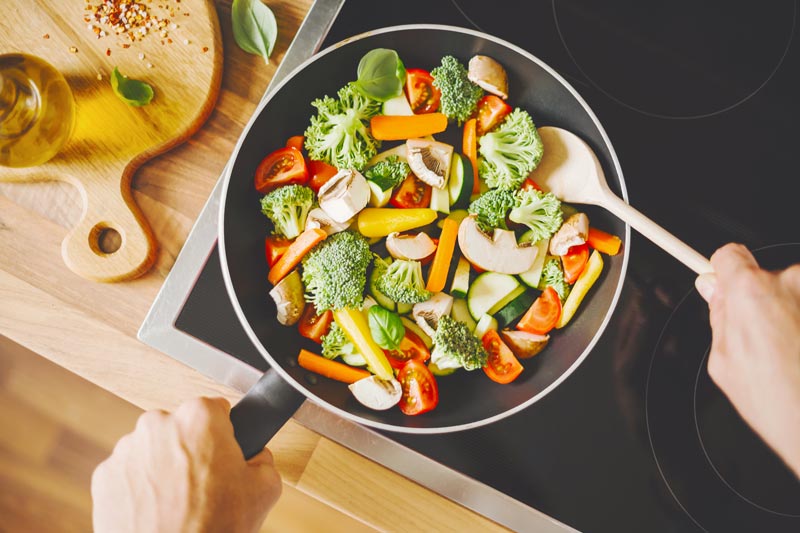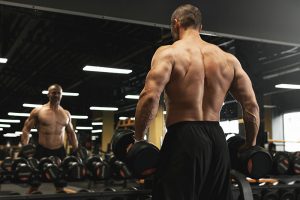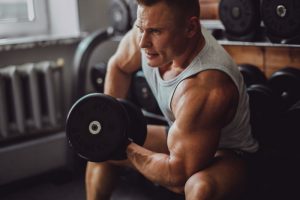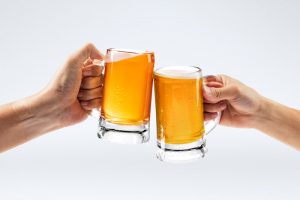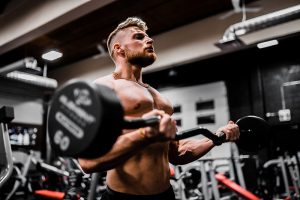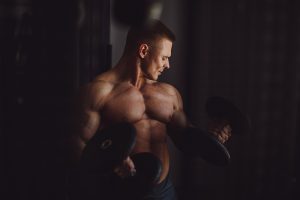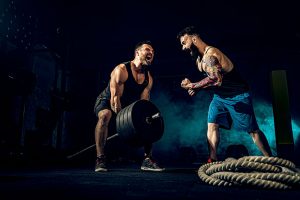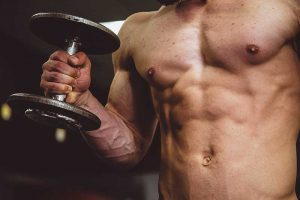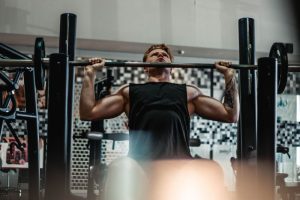There’s no denying it, food plays an important role in our lives – beyond being delicious. Working out in the gym takes a lot of energy, and that fuel needs to come from somewhere… The food you eat. Think of it this way, you wouldn’t fill a Ferrari would cheap knock-off fuel, would you?
The same applies to your body. In order to lift weight and build muscle successfully, you need the right fuel in the tank. Whether you’re trying to lose fat or gain muscle, it all pivots around your diet – when paired with a regular workout routine.
But what should you be eating to support your gain goals? Here’s everything you need to know.
The right food = greater results
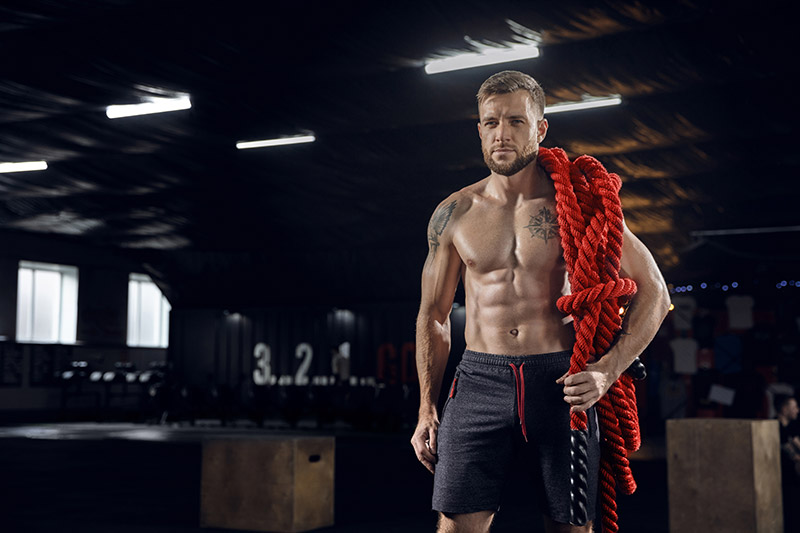
Of course, pushing your muscles hard in the gym is going to increase muscle growth, but both before and after working out, your body needs to refuel. The food you eat supports the rebuild of stronger, bigger tissue, while pre-workout food gives you the energy to strength train in the first place.
In order to construct muscle, you need the right nutrients in your body – which means that junk just won’t cut it, my friend. But it’s not just what you need, the quantity matters too.
Also Read: 8 bodybuilding tips for faster results
If you were to try strength train without adequate nutrition, you could end up losing muscle tissue – the total opposite of what you’re trying to achieve. Plus, without eating the right foods, you’re likely to feel sluggish in the gym, kinda wasting your workout if you ask me.
In order to maximize your gains (both in strength and muscle mass), you need:
- The right amount of calories, daily
- Adequate protein to rebuild muscle tissue
How much should you be eating whilst training?
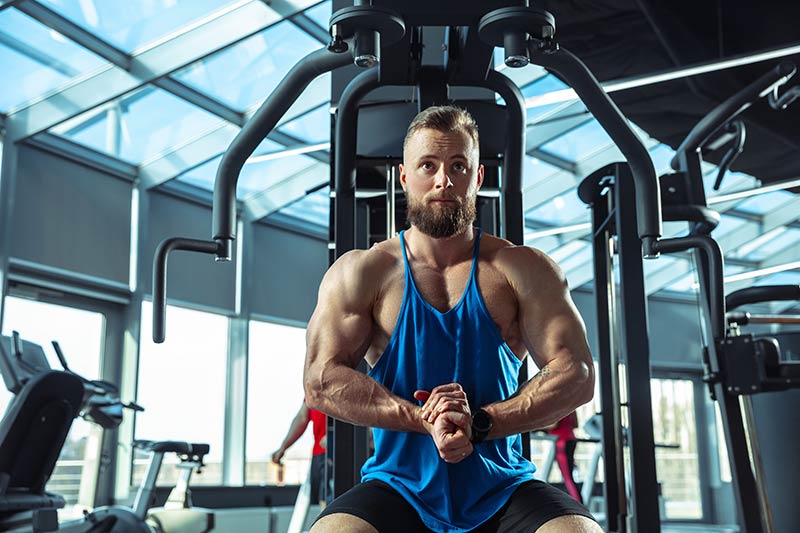
Now, it’s all about your goals here. When you’re aiming to build muscle, your body naturally means more fuel than simply maintaining body composition. This can be a tricky obstacle to overcome for some – the idea of eating more – especially if they’re concerned about gaining fat or adding weight.
However, the important factor here is where those calories go: Muscle development. So as long as you’re working out correctly, you won’t be gaining a shed load of fat.
Plus, of course, what you eat is key. Stocking up on pizza isn’t the way to go about building muscle and building strength. Sorry, guys.
The number of calories an individual needs per day when working out and gaining muscle varies, however. Generally, adding around 20 to 30 grams of protein per day is a good rule to live by.
The importance of protein for muscle growth
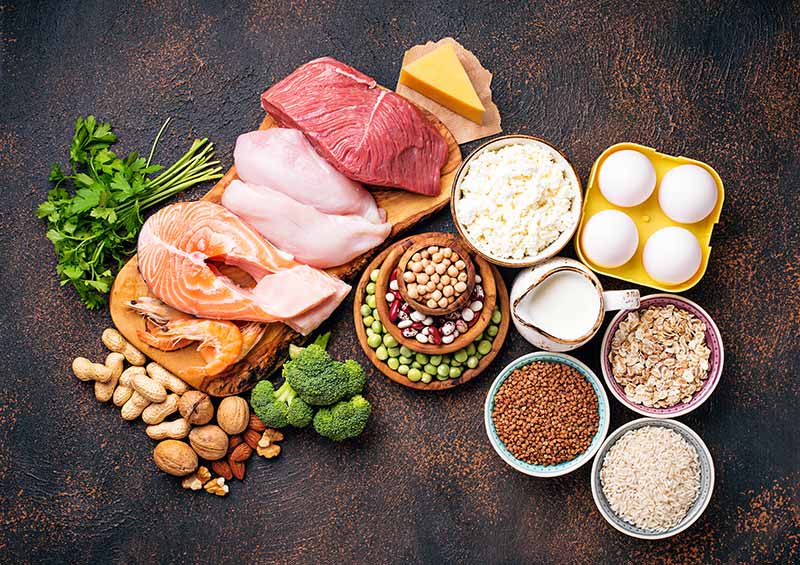
During strength training, it’s incredibly important to follow a balanced diet, rich in nutrients. But, to focus on gaining muscle, protein plays a huge role in your success.
Since muscle tissue is made up of predominantly proteins, this macronutrient holds the key to maximizing your workouts. While the usual dude is getting enough protein day-to-day, for those looking to add muscle mass, it’s important to review your protein intake and adjust accordingly.
As a general rule, here’s what research and nutritionists suggest:
- For sedentary individuals (those who are often sitting or lying down), it’s recommended they consume around 0.81 grams of protein per kilogram of body mass. As an example, a person weighing 150 pounds would eat around 55.5 grams of protein each day.
- For active individuals, it’s recommended to consume around 1.2 to 1.7 grams of protein per kilogram of mass. This means a person weighing 150 pounds would consume 95 to 136 grams of protein daily.
- For those looking to gain muscle, the ideal protein intake per day is 1.6 grams per kilogram of body mass (according to studies). This means a person weighing 150 pounds would consume 109 grams of protein each day.
For more on protein, check out, ‘should you eat protein before bed to build muscle?’
Tempted by junk food? Here’s how it affects your gains
We all like different kinds of food, right? While the odd pizza every now and then isn’t going to totally sabotage your gains, a diet of processed and sugary foods is certainly not going to maximize your muscle growth.
Not only is it not unusual to feel a bit sluggish and groggy after chowing down on a bucket of chicken or a fat ass burger and fries, but it’s also not going to be delivering the nutrients you need. According to studies, it only takes five days of a high-fat junk food diet to change the way your muscles process glucose.
If you’re looking to gain weight – by any means – then sure, junk food could be your go-to (as demonstrated in a dirty bulk). But it’s plain to see how junk food affects not only your energy levels and motivation to workout after, but also the way your body performs.
Here’s why you shouldn’t ignore carbs
While putting all your focus on protein, it can be easy to let your carb intake slip by. But the truth is, this macronutrient is just as important – we’re aiming for a balance here.
Also Read: The Best Foods for Bulking
The body will struggle to absorb more than 35 grams in one go, so every meal and snack should include protein paired with carbs and a small bit of fat.
Fat is important, but it’s not quite so necessary to track. But that doesn’t mean you can go scoffing food just yet…. The likelihood is, if you’re eating enough protein and carbs, you’ll be hitting your fat intake too. Plus, fat is easier to store in the body, so it’s hard to be deficient.
Popular safe and legal steroid alternatives
The ultimate guide to muscle building foods
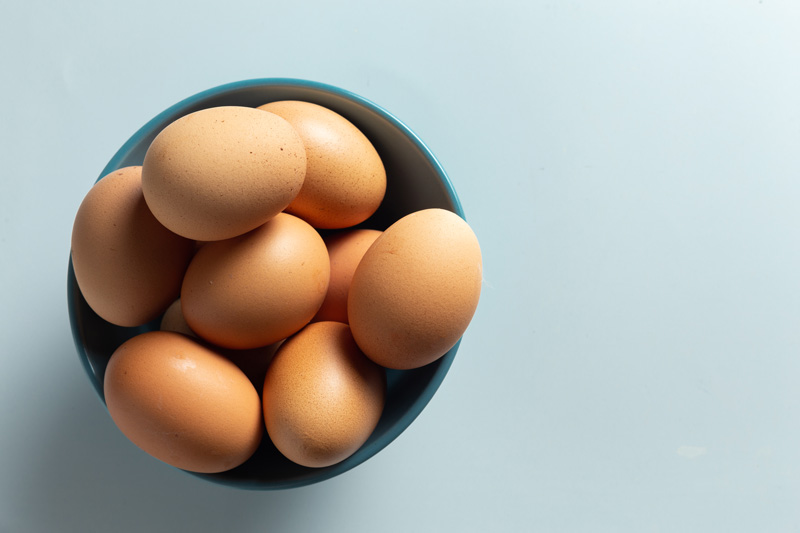
Building muscle and strength is far easier with the right foods to fuel your workouts and support muscle growth. You’ll be needing plenty of lean protein, complex carbs and foods that are high in protein as well as micronutrients.
Not sure what you should be eating? Here are 14 of the best protein-rich foods and complex carbs to support your gains.
- Eggs – One egg has around six grams of protein, as well as B vitamins and healthy fats.
- Chicken – An excellent source of lean protein, chicken has around 26 grams of protein per three ounces.
- Lean beef – It’s all about the lean cuts! As well as containing a solid punch of protein, lean beef also contains creatine, which boosts athletic performance.
- Cottage cheese – Look out for cottage cheese that’s high in protein, with some containing as much as 25 grams per serving, alongside calcium.
- Salmon – While it may not be to everybody’s taste, salmon is a fatty fish rich in both protein and omega-3 fatty acids, which together support your gains.
- Beans – The more beans the better, opt for black beans, pinto beans and kidney beans as your first go-to. These are a great source of lean protein, at around 15 grams per cup.
- Tempeh – A little less processed than tofu, this fermented soybean packs a punch of protein – so it comes as no surprise it is frequently seen in a vegan diet.
- Tofu – Utilized by both vegetarians and vegans, tofus is a great source of protein.
- Tuna – An easy snack or as part of a meal, tuna is packed with vitamins as well as around 20 grams of protein in three ounces.
- Peanuts – Fancy something to nibble? Peanuts are great for on the go, as well as containing around 17 grams of protein in half a cup.
- Greek yogurt – Easily added to smoothies and breakfasts, Greek yogurt contains more protein than regular yogurt.
- Nuts and seeds – Add a variety of nuts and seeds into your diet, including almonds, cashews, walnuts, sunflower seeds, pumpkin seeds, and others, for protein, carbs, and micronutrients.
- Quinoa – A solid dose (40 grams) of complex carbs, quinoa also contains around eight grams of protein per cup.
- Brown rice – Less refined than white rice, brown rice is both delicious and has a good dose of proteins and nutrients.
Foods to avoid while strength training
Now you know what you should be eating, what should you be avoiding while maximizing your muscle gains?
- Alcohol
- Processed and fried foods
- Added sugars
Ready to strength train like never before?
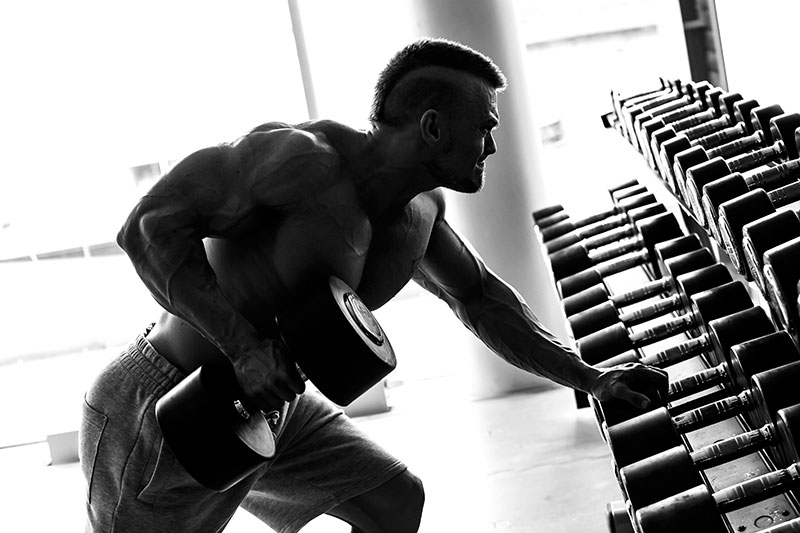
With the guide above, you’ll be well on your way to hardcore muscle growth and strength gains. While hitting the gym may seem like the easy part, your nutrition pre and post-workout matter too.
Looking for a little support? It may be time to get BRUTAL, with our 100% legal and safe bodybuilding steroid alternatives and SARMs.
Get ready to build lean muscle like never before, with extreme strength and increased energy levels. From bulking to cutting, we’ve carefully created side-effect-free bodybuilding steroids to support your goals, with ZERO side effects and NO needles.



